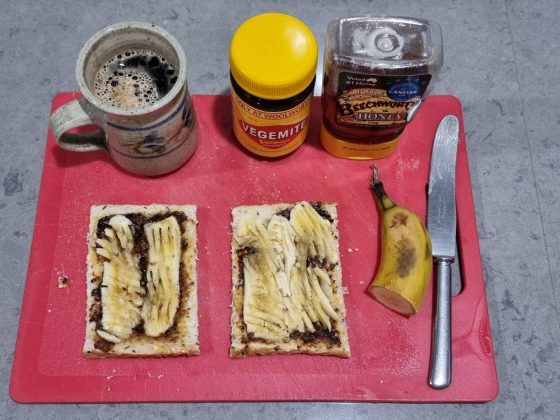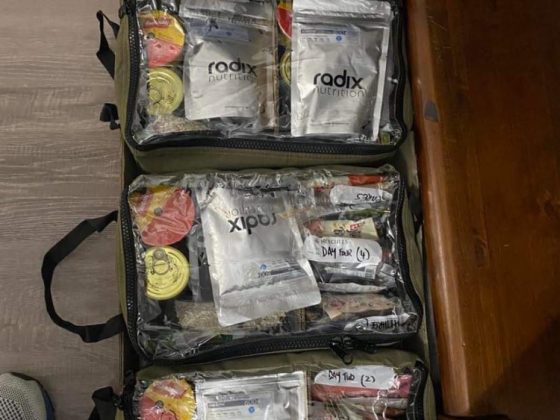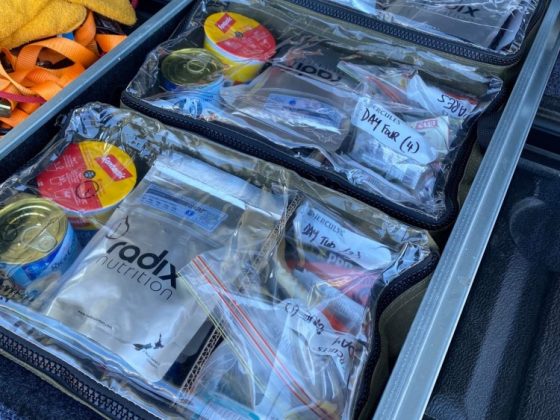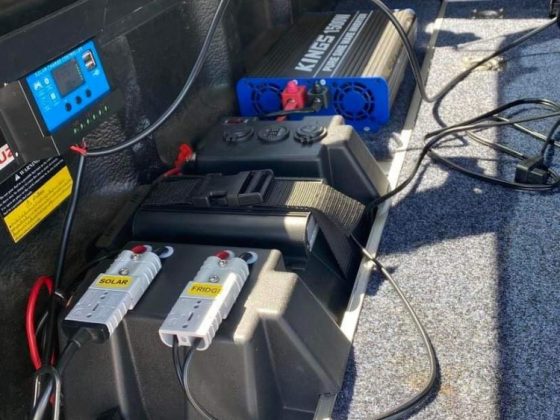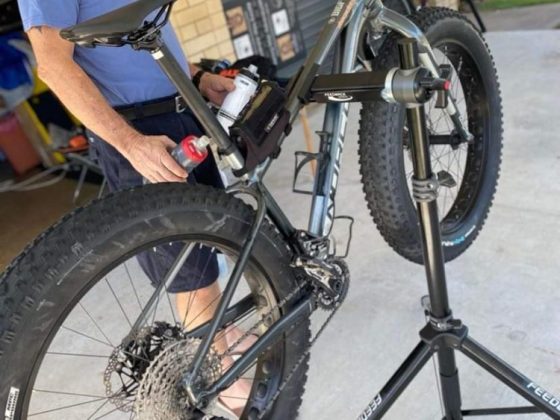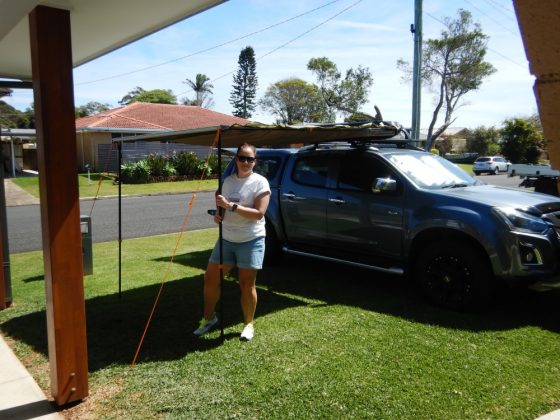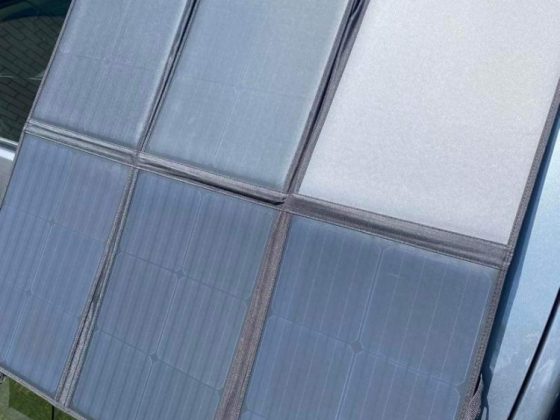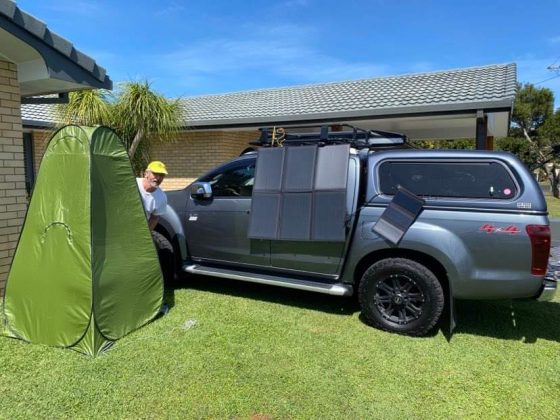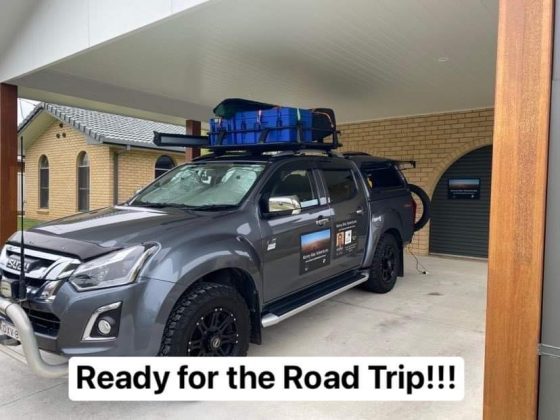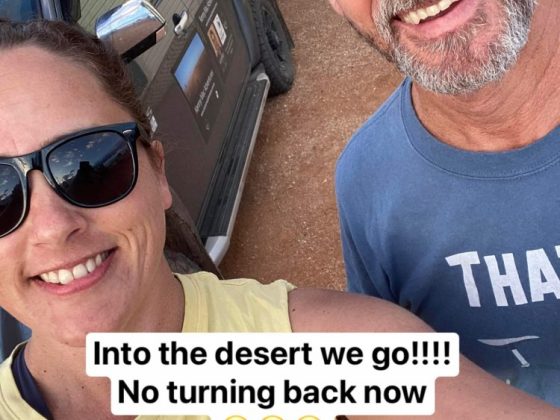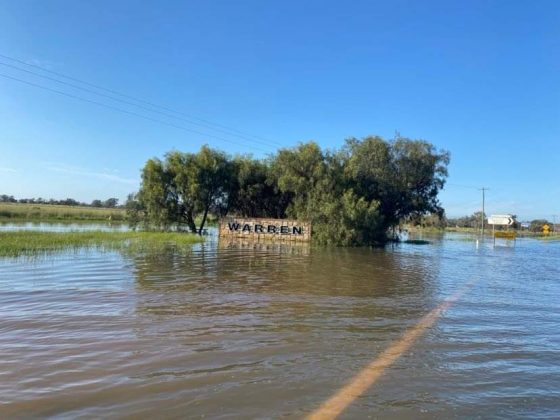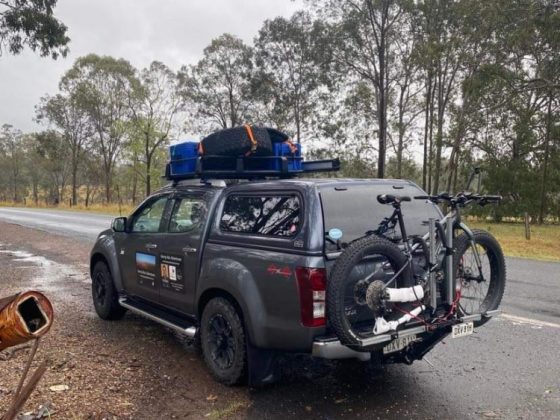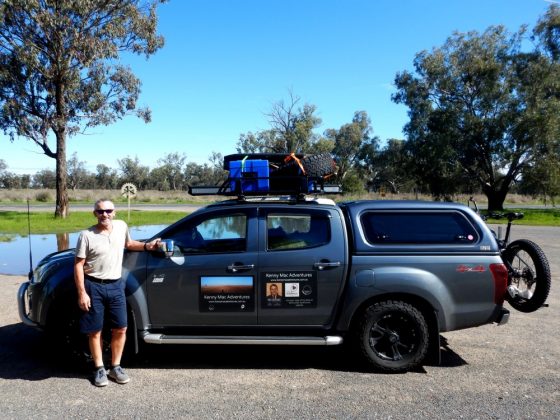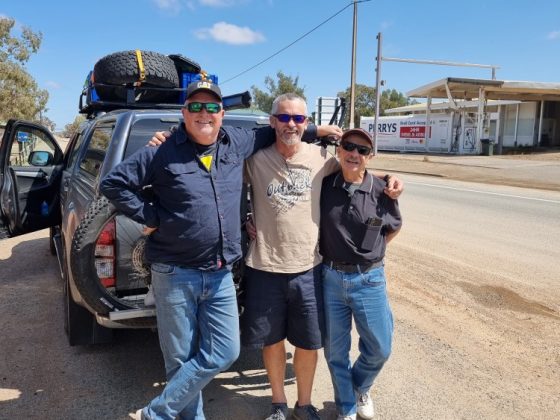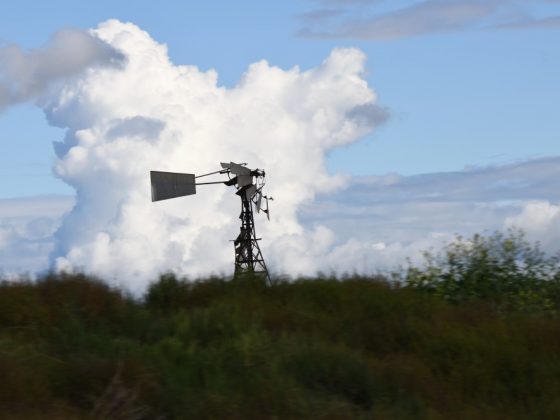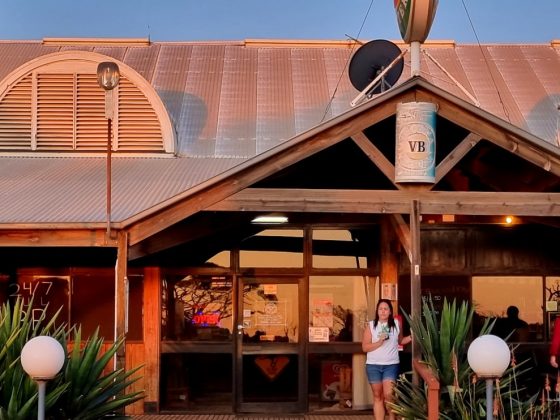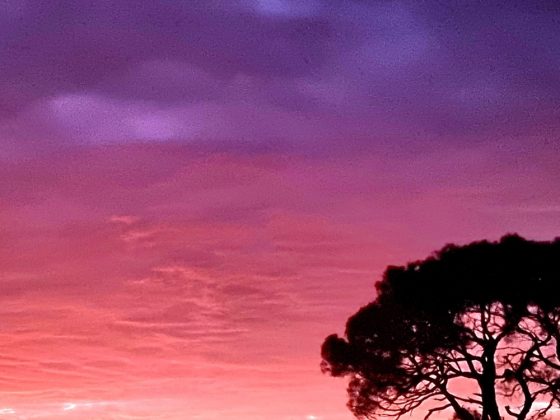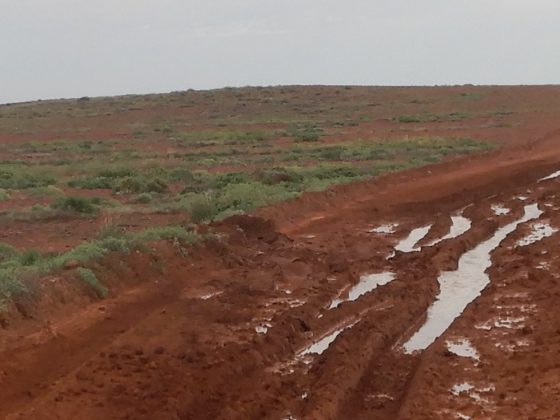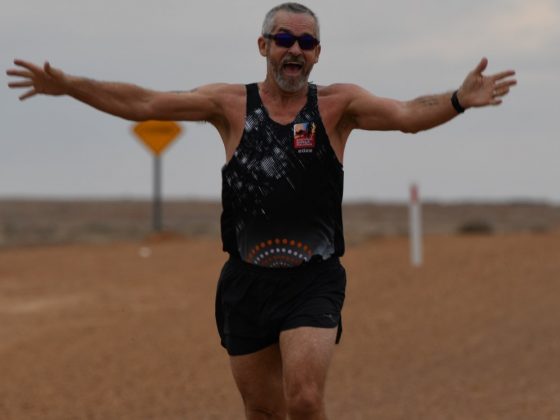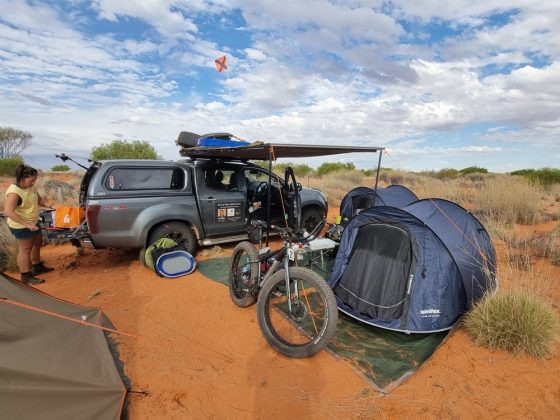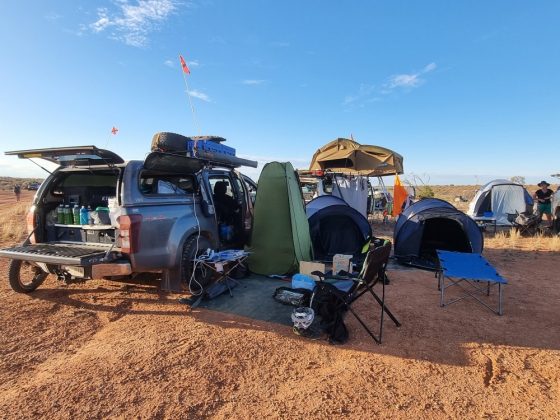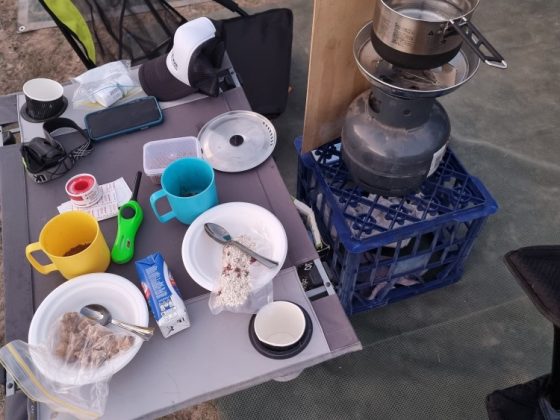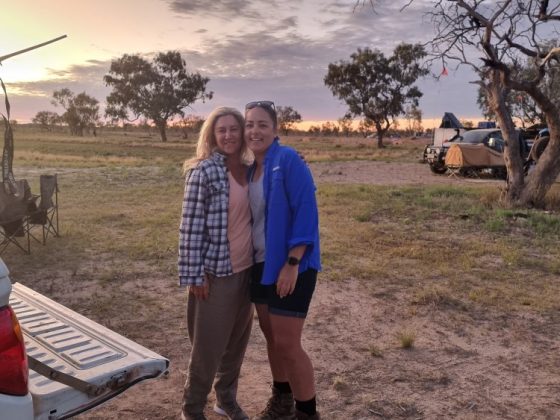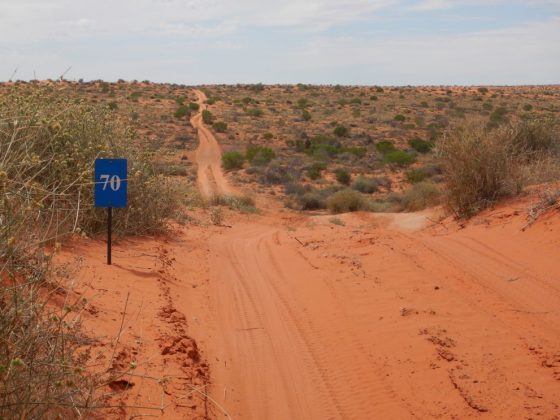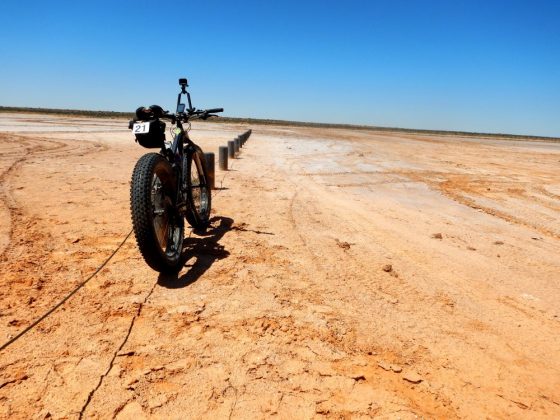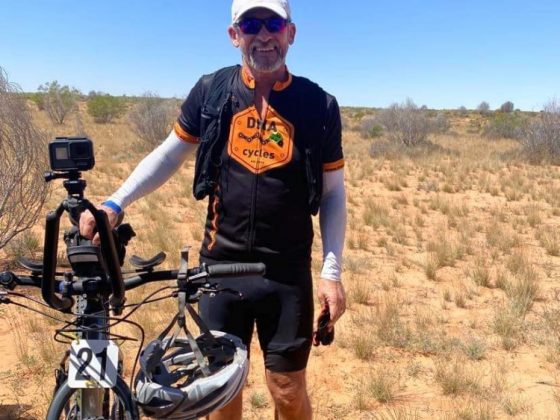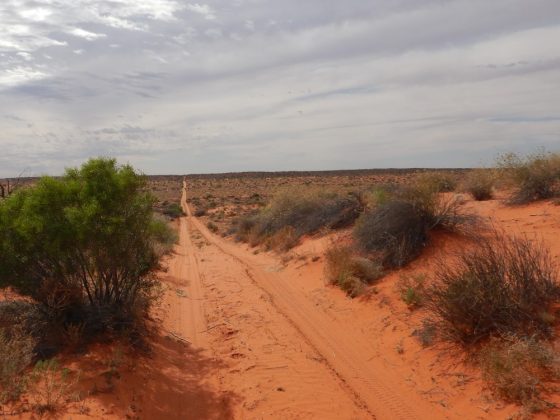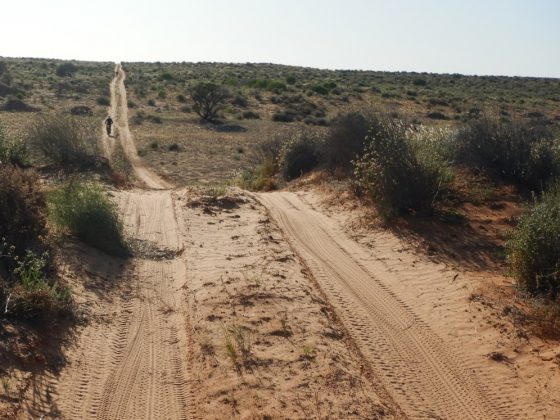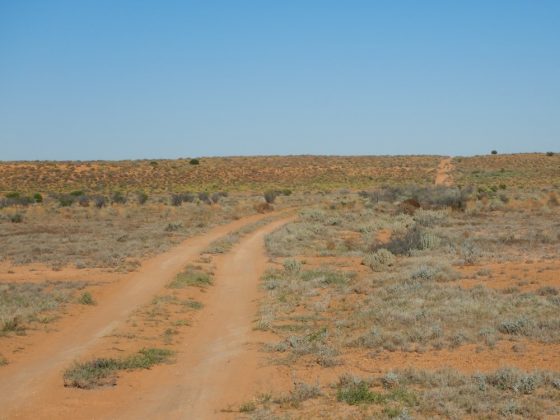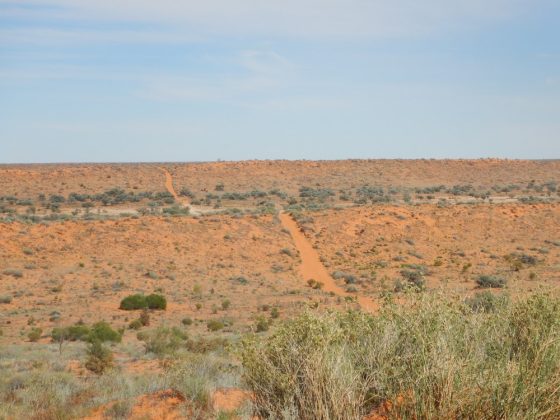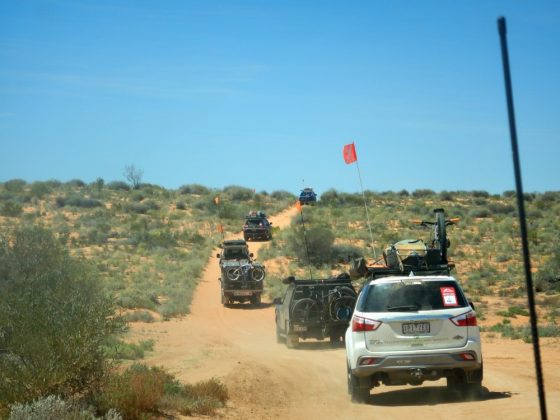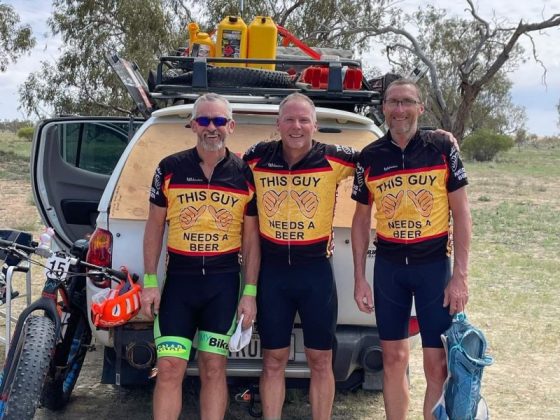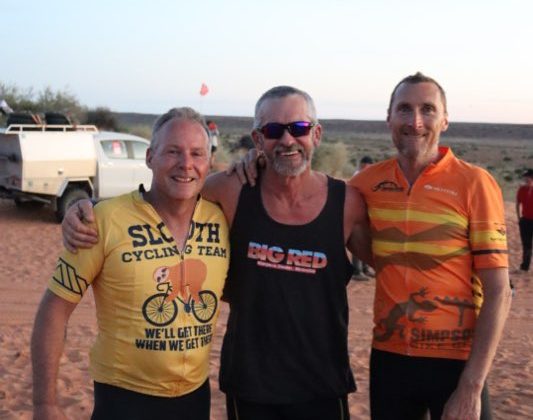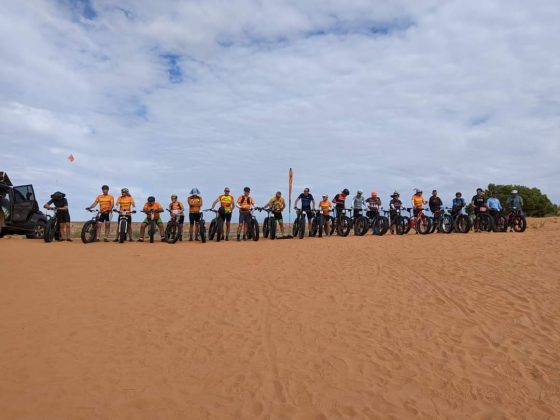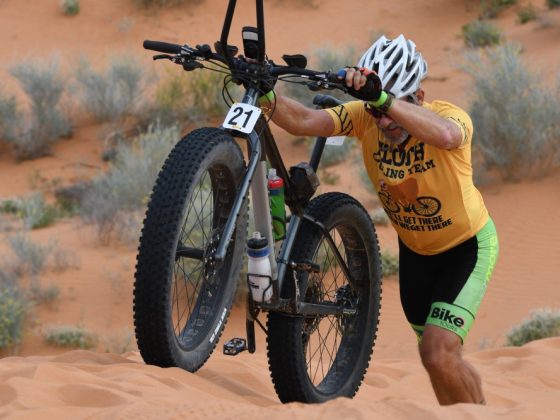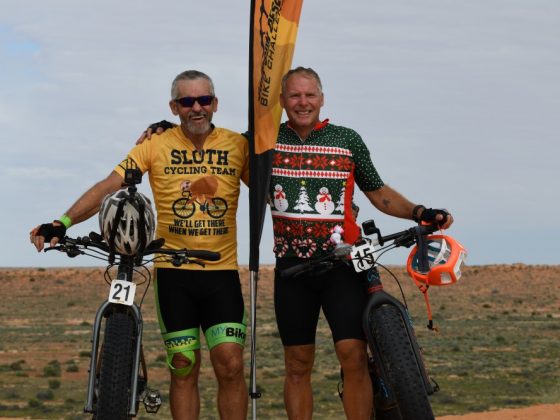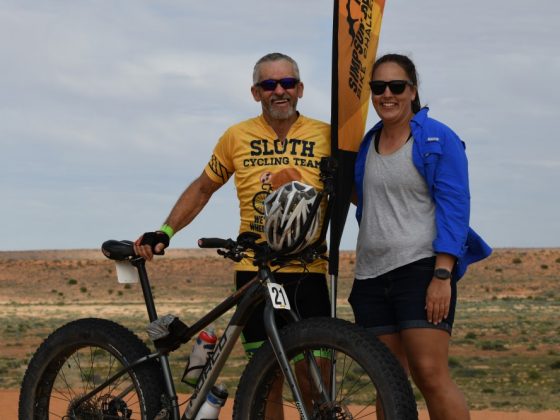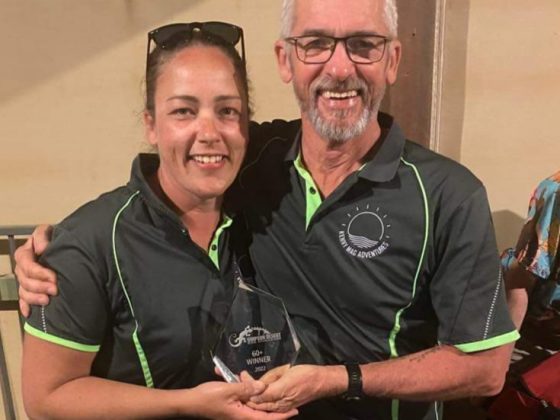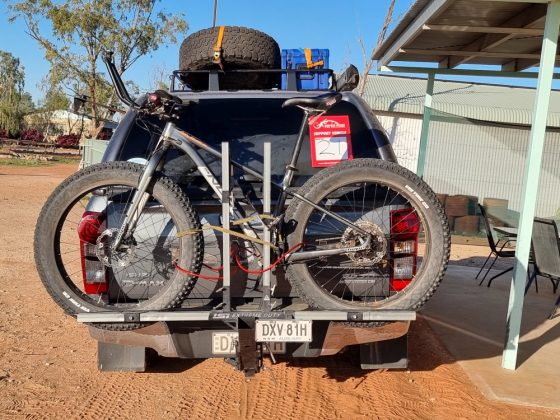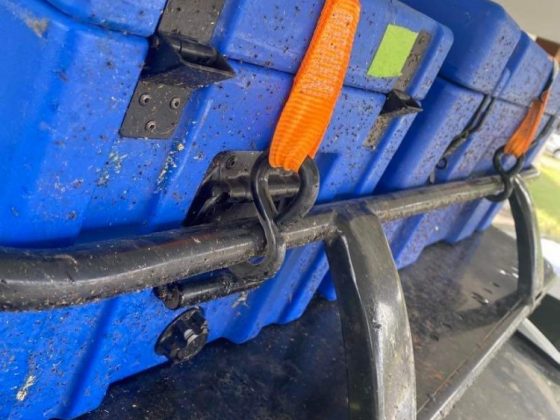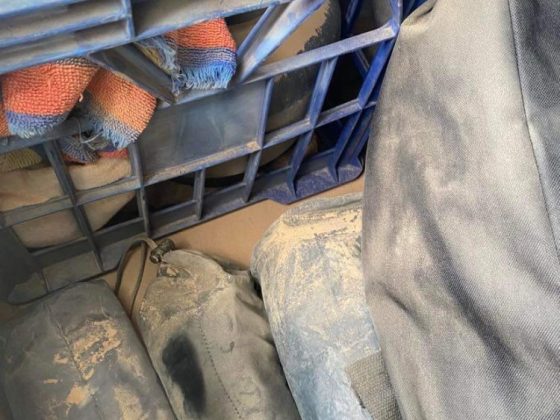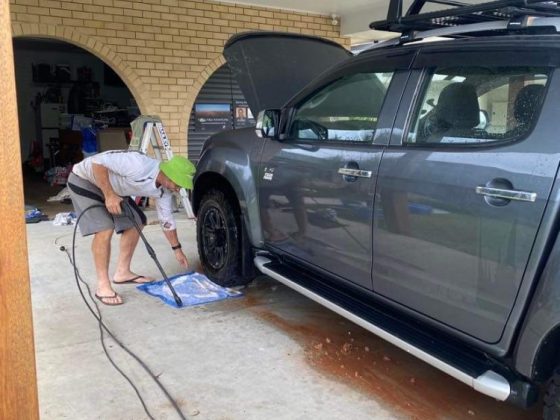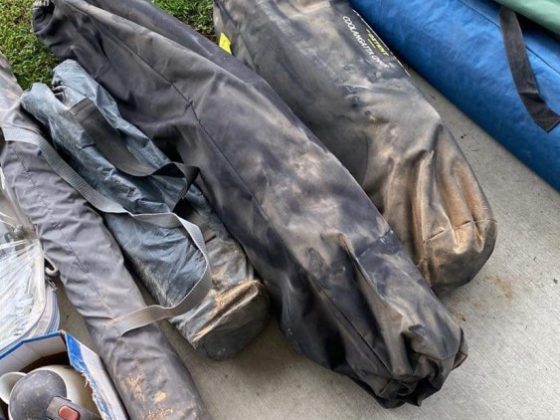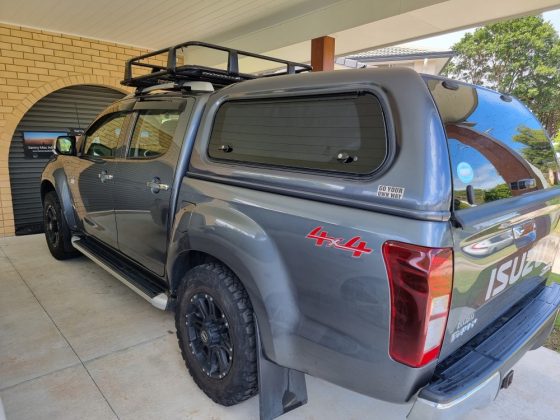PURNIE BORE TO BIRDSVILLE – AUSTRALIAN SIMPSON DESERT BIKE CHALLENGE.
740 Sand dunes – 500 kms Cycling from 27th September to 1st October 2022.
Note from the organisers……………………
“SDBC Welcomes you to the middle of Australia.
The Simpson Desert is the world’s largest parallel sand dune desert in the world and The Simpson Desert Bike Challenge is one of the oldest stage races in the country. The event crosses the Simpson Desert from West to East covering roughly 500km over ten stages. Each race day has two stages – approximately 80km each morning and 50km each afternoon.
The course traverses some 700 sand dunes, salt lakes, vast cattle stations, and gibber plains. Riders and crews will experience all the diversity of this rugged and beautiful desert.
The event is more than a mountain bike race – it’s a moving race village comprising riders, their support crews, 4wd vehicles and event crew. Everyone involved in the event comes away with new friendships, awesome stories, and a sense of having achieved something unique.
The SDBC have three main goals for their event:
1.Provide opportunities for personal achievement in a sporting challenge
2.Support community interests through raising funds for the Royal Flying Doctor Service
3.Foster appreciation of the Australian outback and the natural environment”
The SDBC is listed as one of the worlds top 12 hardcore endurance races.
This Matador Network website tells us…..
So, you’ve mastered the marathon, triumphed in a triathlon, and kicked ass in the CrossFit Games. But what does an endurance sports adrenaline junkie do next? Here are 12 of the world’s most hardcore endurance races to test your bones, brains and bodily fluids to their absolute limits and earn you bragging rights for the rest of your life…
Low and behold this race is on the list…..
“The Simpson Desert Bike Challenge (Australia)
The Simpson Desert Bike Challenge sees brave cyclists tackle a route of 590km over five days in the sparse Australian outback. With 700 strength-sapping sand dunes to negotiate and vast empty plains to cross without as much as a koala or kangaroo in sight, entrants use thick-tired ‘fat bikes’ to help them overcome the mentally and physically exhausting terrain.”
I received a call from Stuart (Wags) who thought the SDBC race could be our next event together.
Well…. I thought, sounds difficult, could be a challenge, maybe I’m too old???…. Then thought
What the heck!!! What a great Kenny Mac Adventure!!!!
For the race I needed to have a support vehicle and crew member, so I asked my daughter Emily to be my crew member and driver. What a way to learn 4×4 skills in the desert. Emily had never driven in the sand before, let alone the Australian Simpson Desert. She was not alone in it being her first experience, there were a few ladies who were crew members for the first time also.
PREPERATION
With many race events being postponed during COVID restrictions I ended up having two years to prepare for the race. I still found it quite daunting with things to do other than just training the legs and body for the sand dunes.
- Organise a Bike that could take on the Simpson Desert
It was recommended by the organisers that a Fat Wheel Bike would be best for the race. For you Bike fanatics – here is a little info about the fat wheels.
Norco Bigfoot 3 – 2020 – 27.5 cycle. I had the mechanical brake components replaced with Hope Tech hydraulic brakes front and rear. Put on a dual front crank cassette from a 28T to 16T-22T and the rear cassette changed from 11-42T to 11-51T.
Thanks to DNA Cycles Narellan for their work and advice, the bike is ready to attack the sand dunes.
I added a set of aero bars for the GoPro, fitted an AY-UP lighting kit for the lights needed for the Day 3 night race, and the connection for my Garmin 1030.
I purchased an iSi bicycle carrier which sits up high and won’t be a problem bottoming out on the sand dunes. It also folds down easily to give you access to the rear of the car. I used this bicycle rack last year when I cycled the Birdsville Track with Dusty. It’s all Australian made with a lifetime guarantee.
Prepare my Isuzu Ute 4×4 for its role as support vehicle:
The Isuzu has been set up over the years to support me in my many other adventures and events. I had previously put a set of Titan draws in the rear compartment for storage.
A big concern I had was whether I would need a second battery system in the Isuzu. With this in mind I rang my outback buddy, Alan Healey, and asked for his advice. He has driven the Simpson Desert 7 times, the Birdsville Track over 100 times and many other tracks out there in the Australian Outback.
I headed off and took a leisurely drive to visit Alan in South Australia and we had the Isuzu fitted out over a weekend.
I had a full service done before the trip, replacing all oil and filters and now my trusty Isuzu Ute was ready.
- Camping Gear
Over the years of trekking and adventuring I have a lot of different camping gear. All I needed to organise was two pop up tents, and a pop-up shower/toilet so that we were comfortable and had privacy.
When Emily arrived from Sydney, she practiced putting the tents and the car awning up and packing them away on the front lawn. It was a great way for her to trial the gear and feel comfortable doing this considering I wouldn’t be there all the time to help – I would be cycling the sand dunes. It was a great way to check all the fittings, cords, ropes, pegs that we didn’t think of.
- Food and water
We can agree that water is one of the top priorities when cycling in the desert. It was compulsory that each rider carried 100 litres of water for the race, and that each crew member carried 70 Litres.
I bought the rectangular 10ltr cartons. From experience it was easier to pack and move around the Ute. When empty you can take out the bladder (can be filled again if required) the box can be used to put rubbish in or flattened and packed away – ultimately this option gives you more room.
Over the years of completing many solo treks in the outback for long periods, I have become confident in knowing my requirements when it comes to nutrition and food intake.
I organised all my food for each day in groups – breakfast, lunch, dinner, and riding snacks. I had found great zipped bags that are made by ‘Kings’. They were perfect size to store all the food within the titan draws and having clear tops made it easier to see. Thanks to Emily for helping me pack them up.
It was not only my food that needed to be organised and Emily decided to eat much the same as me. The daily menu was:
Breakfast –
- Kenny Mac’s special homemade porridge (secret recipe)
- a Radix 800 calorie meal – They do fantastic breakfast options
Lunch –
- Tuna Mix – this also has beans, rice and vegetables (yummy fillers)
- or a Happy Camper meal with noodles
Dinner –
- Radix 800 calorie meal
- Fruit
- tin of creamed rice.
During the ride I would take lots of nutritional bars and gels. I would have Tailwind nutrition in my water (3 a day). At the end of each day’s race (2 races a day) I would drink a Radix recovery smoothie. My favourite Smoothie is the ‘Spirulina and Strawberry’
Every athlete is different in the types of food that they consume during events. Over the years I have found the foods that give me the calories and nutrition that I need that suit by body best while racing.
With all our gear organised we packed the Ute and were on our way to Purnie Bore.
5 DAY TRIP TO PURNIE BORE
Due to the flooding in areas of the Southwest NSW at the time we needed to make a couple of detours. We were lucky that on the way to Broken Hill that although there was water across the roads we were still allowed to drive through the water near Warren. There were still many areas of the town that was flooded.
I was a little excited that we would be in Broken Hill on the Saturday morning, and I found out that they have a Parkrun (I love running them). I knew Emily and I had a huge drive to Glendambo that day but decided to do the Parkrun. We later rang the guys at Glendambo to say we might be a bit late, but it is always best to let them know that we’d be there.
On leaving Glendambo I drove to the start of the dirt on Kempe Road, just outside of Coober Pedy to Oodnadatta. It would be Emily’s first real Australian Outback dirt road experience. I was quite excited when we got onto the dirt, I do love the Outback.
In the excitement of seeing my favourite outback again – I thought…. maybe I’ll go for a run, loosen up those ‘sitting in the car legs’. So, I did. The run felt great. Emily droves ahead each 2.5km section and waited for me. Absolutely enjoyed the 7.5km run.
From Oodnadatta, it was only one more days drive to the start of the SDBC.
All in all the trip from home went very smoothly and we shared the driving every day. With nearly 2,700 kms of driving to the edge of the Simpson Desert we arrived to set up camp with my ultra-running buddy, Wags. As I mentioned above, he was the guy who rang me one night and said, “got this race you and I should do”. And I said, “Yes”.
THE RACE BEGINS
It was 4:30am, the morning radio call was heard and the camp sites all stired. I had been up since 4:00am, it was still dark. I rolled up my bedding in the tent, got changed and put the kettle on. Emily had organised all the breakfast items and water bottles the night before. We were required to have an extra 6 water bottles for the three water stations on each race, morning and afternoon.
The wind was ‘South, Southeast’, quite strong and somewhat cool. It mostly stayed that way for the five days and kept the temperature down. Day 5 was the first time it climbed up to 36 °C.
I would put some pieces of strapping tape on the bike with notes of the turning point kilometres, compass direction and the water stop kms. I added the photo below so you can see how this looked. Hopefully the notes would take my mind of the totality of the race distance, breaking the race up into smaller chunks.
5:30 am was the weigh in, our weight was checked at the start and finish of both races each day.
5:45 am roll call at the start line
6:00 am and we were off.
Knowing I had trained hard for this race I was still somewhat unsure. The mind will always play games…….I smiled and clipped in my bike shoes. The start was amazing, the lead riders were off like bullets. I stayed at the rear having been told not to wear myself out on the first 78km section, still having to do the afternoon 38km race at 2:00pm.
I made it through the sand dunes comfortably and seeing the 70km marker was exciting. I cycled into the end of this first stage with an hour to spare ahead of the required time. Devoured my lunch, rested and started the pre-race process again.
1:30 pm weigh in
1:45 pm roll call at the start line
2:00 pm and we were off.
Nothing can quite prepare you for riding these sand dunes. Like a lot of races and treks I’ve done there is always a huge amount of the unknown to face. That’s why I believe, live “in the moment” and enjoy your surrounds and what you are doing.
Rolling into the end of stage 2 and day 1 was an incredible achievement. The unknown is now known. The sand dune are just that, sand dunes. Pushing myself to my limit at times with fear of being swept (behind cut off time) I didn’t have a chance to look at all the scenery. I would get my camera out only when I’d stop on top of a sand dune, to have a drink and something to eat with a toilet break if needed. It was a great time to take a few pics and a selfie or two and then get back on the track.
Emily and I would have our camp down to military precision when setting up and packing down. Her first day 4×4 on the dunes was a real experience, such a big learning curve and she did bloody well.
With all the riders and crew members carrying their chairs, we would meet at 7:00 pm for our evening round up on the days ride and the next day’s stages. To raise money for the Flying Doctors there were fines given out (gold coins). I got a fined for my “contagious smile”. “He smiled at every water stop and finish line”. So funny.
Each day was the same, prep gear, water bottles, food, bike and body.
Stage 6, Day 3 was the night-time race with lights. This was incredible and fun. It broke up those long sand dune rides, I thoroughly enjoyed it.
Stage 7, day 4 was a real killer for me. At around the 55km mark, right on the top of a rather large sand dune, I changed gears too quickly in preparation for the fast downhill and my chain jumped up and locked over my rear derailer. The rear wheel locked up solid, the front wheel went into soft sand and over I went. Luckily I landed in the soft sand, except the handlebars swung around and the gear lever dug into my kneecap. Only a small hole and some blood, had worse I said.
My main concern was the bikes rear gears, chain and derailer……….bloody hell. My fingers were cramping, and I couldn’t get the chain over the derailer wiring. Usually I would find a stick to help, but not in the desert, sticks there weren’t at all fruitful. I will have to admit a ‘mushy brain’ moment and I forgot that I had tyre levers in my repair kit. So, I used one of my tyre levers to help it over the cable wire. I didn’t know how long I’d been there fixing it but knew I had to get going and quickly. Finally got the bike going, rideable with a bit of a grating noise in the top two higher gears.
I got to the next water stop (yes still smiling) and they said the sweeper was only 12 minutes behind me. That couldn’t be right I thought then remembered we were racing in South Australian time and my GPS had switched to Queensland time.
I took off, determined to beat the sweeper but the corrugations got bigger, in the end I couldn’t keep up the pace. I needed to make it to camp before the cut off time. I was swept at the 62.5km mark. Emily was in the rear convoy and I had some time with her in the Ute where she showed me her 4×4 skills in the desert. We had some laughs getting to camp and at times I would be hanging onto every handle in the Ute going over the dunes. The difference between cycling over and driving over was amazing. So much easier on the bicycle.
On the last day of cycling, the morning race was held on top of the sand dunes between Little Red and Big Red. Riding into Birdsville, we all headed towards the finish line in a group, it was something to see. Pushing myself to the limit was all forgotten when we all crossed the finish line. It was an extraordinary moment and what I achieved finally sank in.
We made it home, back to Ballina, NSW late Tuesday evening on the 4th of October. We travelled a total of 5,171 kms, starting 14 days previous. Emily and I have spent two days cleaning and washing all our gear, clothes and vehicle before Emily had to fly back to Sydney. I don’t think you ever get all that red centre dust out of a Ute, bike and gear no matter how hard you try.
To Emily, your incredible military precision and organising made my cycling event all that more enjoyable. Thank you.
The Stats:
DAY 1 Dist Time Avg Speed
Stage 1 78 5:28:16 14.3km/hr
Stage 2 34` 2:23:20 14.3km/hr
DAY 2
Stage 3 66 4:41:35 14.1km/hr
Stage 4 43` 3:05:27 13.9km/hr
DAY 3
Stage 5 76 5:56:12 12.8km/hr
Stage 6 18` 1:04:19 16.9km/hr
DAY 4
Stage 7 63* 5:15:18 12.0km/hr
Stage 8 DNS`
DAY 5
Stage 9 15 1:47:03 8.4km/hr
Stage 10 34` 1:53:19 18.1km/hr
Cheers Kenny Mac
Oh…….what’s next – You will have to wait and see!!
I can tell you – It is big!!! Watch this space

